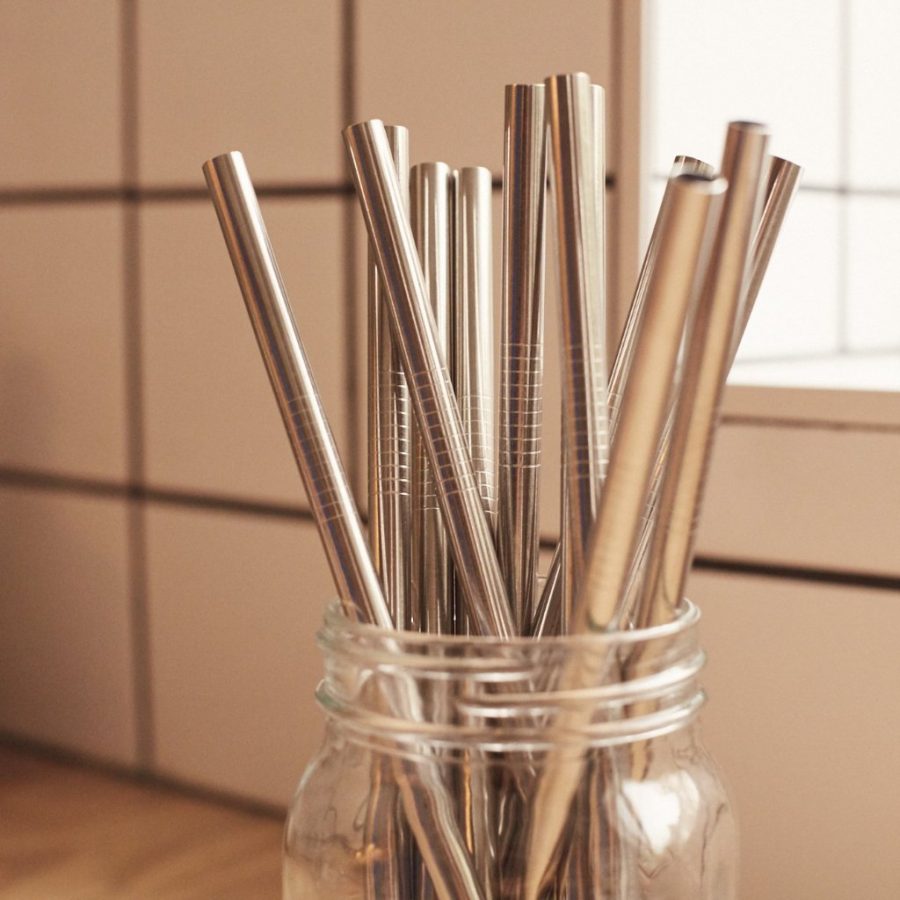On Metal Straws
November 5, 2018
From incorporating electricity-producing workout bikes to building a green roof on the middle school, Latin has tried countless methods to improve our school’s environmental consciousness, some of them successful, and some of them not. The latest idea, while relatively small-scale, promises to reduce Latin’s plastic waste – or does it?
Latin’s new acquisition of metal, reusable straws, although it seems perfect on paper, certainly brings with it an array of environmental drawbacks. The straws, available in Mr. Cronister’s office free of charge, are made of aluminum and available either straight or with a bend at the top. Not to mention they come with a pipe cleaner to aid students in their straw-cleaning endeavors. Moreover, it doesn’t appear as though Latin will run out anytime soon; as of November fifth there were still several hundred shimmering, silvery drinking utensils waiting to be used.
At first glance, the only problem with the beautiful gadgets is that, as Sophomore Marianne Mihas astutely pointed out, “You can’t use them for milkshakes.”
However, as is the case with most school-wide giveaways, the straws now seem to end up in trash cans more often than environmentally-conscious students’ beverages. A day after their Latin debut, straw carcasses littered classrooms and conference rooms alike.
While Mr. Cronister’s “pilot run” of the straws went well, the 150 straws all being claimed, as he said, “in the blink of an eye,” the new surplus of reusable straws might diminish their perceived ‘value,’ and thereby lead members of the Latin community to treat them with less civility. For those who take pride in their ability to bend the utensils in half, don’t. Most five-year-olds could do that (probably).
One paradox of the straws, as many students have caught onto, is that they actually come wrapped in plastic. This isn’t a cause for outrage, though, as the plastic slips improve the straws’ sanitation. “I didn’t want to lie to everybody and take the plastic off [of the straws],” Mr. Cronister said. “That wouldn’t be honest. But I expect and hope that students will be sure the plastic packaging makes it to a garbage can.”
The idea behind the straws was conceived by members of the Middle School’s Green Club, who are now taking action to eliminate the packaging for good – as Mr. Cronister said, “The middle schoolers are, in fact, going to email the company and make sure they know to avoid this kind of thing in the future. They should instead group all the straws in one bag.”
Assuming the straws are used correctly, and students make sure to dispose of the plastic slips they come in, they really would drastically cut back on plastic consumption. If every student picked up a straw, assuming they would use about 1.5 plastic straws per day, the high school would save roughly 5,000 each week.
So, ultimately, whatever your motivation to use the metal drinking utensils may be, whether empathy for sea turtles or avoiding the inconvenience of unwrapping plastic straws, they’re definitely worth trying out.



























































rigbokwe • Nov 6, 2018 at 5:03 pm
Great article! I got two metal straws (one for my sister) and we love them!